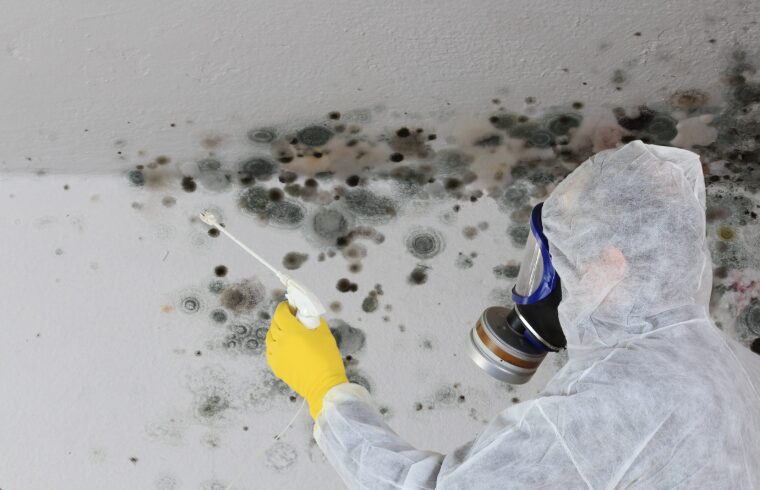Mold is more than just an unsightly problem in workplaces—it’s a health hazard that can impact employee productivity, wellness, and overall safety. Businesses that want to maintain healthy indoor environments often turn to Commercial Mold Inspection Services in Queens, NY to safeguard their staff. By identifying hidden mold growth and addressing air quality concerns, professional assessments ensure that employees can work in safe and comfortable conditions. What you should know is that timely intervention is critical in protecting both your workforce and your business assets.
Why Mold Assessments Are Crucial for Workplaces
Mold grows in areas with moisture, poor ventilation, or water leaks. Unfortunately, many workplaces—whether offices, warehouses, or retail spaces—can develop hidden mold issues that aren’t immediately visible.
The Health Risks of Mold Exposure
- Respiratory Issues: Mold spores can trigger asthma, bronchitis, and breathing difficulties.
- Allergic Reactions: Employees may experience itchy eyes, skin rashes, or persistent coughing.
- Long-Term Effects: Prolonged exposure has been linked to chronic fatigue and immune system complications.
By conducting professional mold assessments, employers minimize these risks and demonstrate their commitment to employee well-being.
Signs That Your Business May Need a Mold Inspection
Although mold is sometimes obvious, it often hides behind walls, in ceiling tiles, or within ventilation systems. Employers should be aware of common warning signs, including:
- Musty or damp odors in specific rooms.
- Water stains on walls, ceilings, or carpets.
- Increased absenteeism due to respiratory illnesses.
- Visible patches of discoloration on surfaces.
- Employees reporting worsening allergies or breathing problems at work.
Identifying these signs early and seeking professional evaluation prevents mold from spreading and reduces health risks.
The Role of Professional Mold Assessments
Professional mold inspections go beyond surface-level checks. Trained specialists use advanced tools to detect moisture, hidden mold colonies, and air quality issues that standard cleaning cannot address.
Key Steps in a Professional Assessment
- Initial Consultation – Inspectors gather details about the building’s history, leaks, or reported employee symptoms.
- Moisture Detection – Using infrared cameras and meters, professionals identify areas of hidden moisture.
- Air and Surface Sampling – Tests reveal the type and concentration of mold spores in the workplace.
- Detailed Reporting – Business owners receive a clear breakdown of risks and recommended solutions.
These steps provide a comprehensive view of the indoor environment, ensuring no hazard goes unnoticed.
Benefits of Mold Assessments for Employee Health
Investing in mold assessments is not just a compliance measure—it directly impacts employee morale and performance.
Improved Air Quality
When mold spores are reduced, employees breathe cleaner air, leading to fewer respiratory complaints.
Reduced Sick Leave
A healthier environment means employees take fewer sick days, improving productivity.
Enhanced Workplace Reputation
Companies that prioritize employee well-being gain trust and respect from both their staff and clients.
Compliance with Safety Standards
Certain industries must adhere to strict health and safety guidelines. Mold inspections help businesses stay compliant and avoid costly penalties.
Preventive Measures to Reduce Mold in Workplaces
After a professional assessment, employers can take proactive steps to minimize mold risks.
- Maintain Proper Ventilation – Ensure HVAC systems are serviced regularly.
- Address Water Leaks Quickly – Even small leaks can create mold within 24–48 hours.
- Use Dehumidifiers – Keeping humidity levels between 30–50% reduces mold growth.
- Train Staff to Report Issues – Encourage employees to speak up about odors, stains, or discomfort.
- Regular Inspections – Annual or semi-annual mold assessments catch problems before they worsen.
Implementing these measures creates a healthier workplace and reduces long-term repair costs.
The Business Case for Professional Mold Inspections
While mold assessments protect employee health, they also make financial sense. Ignoring mold problems can lead to:
- Costly property damage if mold spreads to structural components.
- Liability claims from employees affected by poor air quality.
- Decreased productivity due to frequent illnesses.
On the other hand, regular professional inspections help companies save money by preventing major remediation projects and demonstrating a proactive approach to workplace safety.
What You Should Know Before Scheduling a Mold Inspection
For businesses considering professional mold assessments, there are a few key points to keep in mind:
- Choose Certified Inspectors – Look for experienced professionals with proper credentials.
- Request a Detailed Report – Ensure the provider explains findings in simple, actionable terms.
- Pair Assessments with Remediation – Inspections are most effective when paired with immediate solutions.
- Plan for Regular Follow-Ups – Mold prevention is an ongoing effort, not a one-time fix.
Understanding these factors helps business owners make informed decisions and ensure long-term workplace safety.
Conclusion
Protecting employees from mold exposure is both a moral and financial responsibility for business owners. Professional mold assessments provide the expertise and tools needed to identify hidden risks, improve air quality, and foster a safe workplace. By relying on Commercial Mold Inspection Services in Queens, NY, companies can prevent health problems, reduce absenteeism, and create an environment where employees thrive.
What you should know is that proactive mold management not only safeguards employee health but also strengthens business reputation and resilience.

